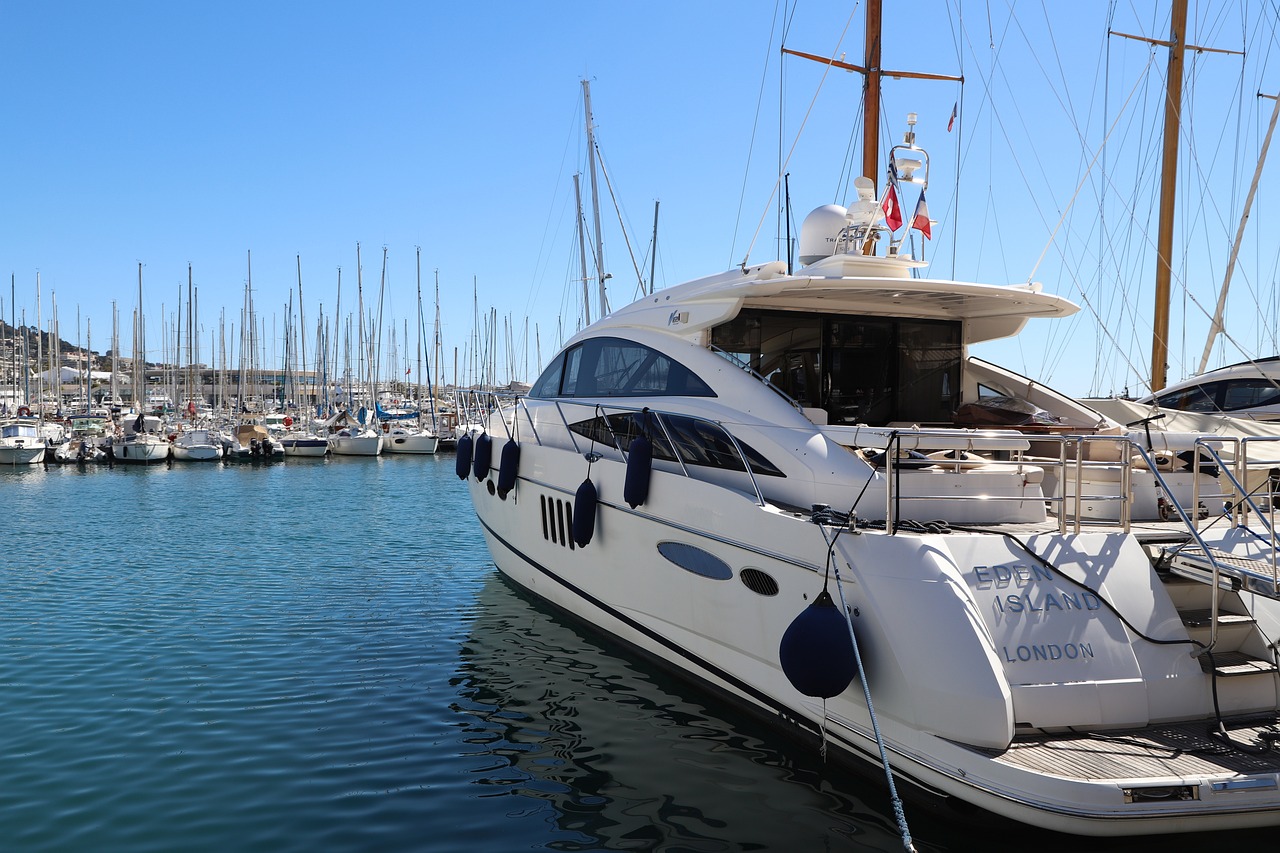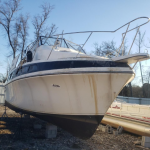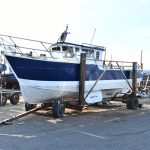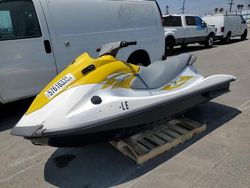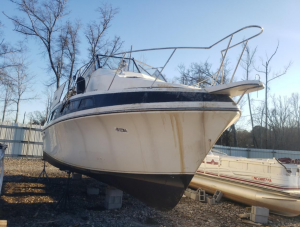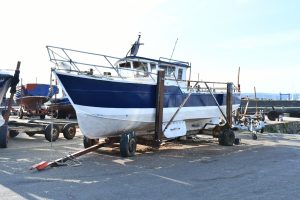When considering buying salvage boats, there are several important factors to keep in mind. Safety should always be a top priority, so it’s crucial to thoroughly inspect the boat for any structural damage or potential hazards. Additionally, cost is a key consideration. While salvage boats can offer significant savings, it’s important to factor in the cost of repairs and maintenance. Purpose is another factor to think about. Are you looking for a boat for recreational use or for commercial purposes? This will help determine the type and size of salvage boat that best suits your needs. Finally, documentation is essential. Make sure to obtain all necessary paperwork, including salvage titles and any relevant repair history. By carefully considering these factors, you can make an informed decision when buying salvage boats.
Understanding the Types of Damages
Structural Damage
When considering the purchase of a damaged boat, it is important to understand the types of damages that can occur. Structural damage, mechanical issues, and cosmetic damage are the main challenges that buyers may face. Structural damage can be caused by a variety of factors, such as collisions, grounding, or improper maintenance. It is crucial to thoroughly inspect the hull and other structural components to ensure their integrity. Mechanical issues can arise from problems with the engine, electrical system, or other mechanical components. Cosmetic damage, on the other hand, may include scratches, dents, or fading paint. By being aware of these different types of damages, buyers can make informed decisions and choose the best course of action for repairs and restoration.
Mechanical Damage
When considering the purchase of a damaged boat, it is crucial to thoroughly assess the extent of mechanical damage. This includes inspecting the boat for wear and tear, checking the engine for smooth running, and evaluating the condition of mechanical components such as belts, hoses, and filters. Additionally, it is important to thoroughly inspect for water damage and estimate repair costs for both materials and labor. By conducting a comprehensive assessment of the mechanical damage, we can make an informed decision about the repair options and potential costs involved.
Cosmetic Damage
When considering the purchase of a damaged boat, cosmetic damage is an important factor to take into account. Cosmetic damage refers to superficial issues such as marring, scratching, or denting of the boat’s exterior. While these damages may not affect the structural integrity or performance of the boat, they can still impact its overall appearance and aesthetic appeal.
It is essential to carefully inspect the boat for any cosmetic damage and evaluate the extent of these issues. This can be done by visually examining the hull, deck, and other exterior components of the boat. Look for any signs of marring, scratching, or denting, and consider the potential cost and effort required to repair or restore the boat’s appearance.
In some cases, cosmetic damage can be easily addressed through simple repairs or cosmetic enhancements. However, it is important to weigh the cost of these repairs against the potential increase in the boat’s resale value. Additionally, consider your personal preferences and the level of importance you place on the boat’s appearance.
When purchasing a damaged boat with cosmetic issues, it is crucial to have a clear understanding of the extent of the damage and the potential costs involved in addressing these issues. By considering these factors, you can make an informed decision and ensure that the boat meets your expectations both in terms of performance and aesthetics.
Assessing the Extent of Damage
Inspection and Survey
When it comes to purchasing a salvage boat, conducting a thorough inspection and survey is crucial. This step allows us to assess the extent of the damage and determine the necessary repairs. We start by examining the hull for any signs of damage or structural issues, such as cracks or dents. Next, we inspect the engine, checking for unusual noises and assessing the oil and coolant levels. The electrical system is also tested, ensuring all components are functioning properly. Additionally, we evaluate the interior for water damage, mold, and signs of deterioration. It’s important to assess the condition of the upholstery, flooring, and cabinetry. Finally, we ensure that the salvage boat has all the necessary safety equipment, including life jackets, fire extinguishers, and flares. By thoroughly inspecting and surveying the salvage boat, we can make an informed decision about its condition and determine if it’s a worthwhile investment. Remember, it’s always recommended to hire a professional marine surveyor to assist with the inspection process. When it comes to purchasing a salvage boat, we’re here to guide you every step of the way.
Determining Repair Costs
When determining the repair costs of a damaged boat, it’s important to consider the extent of the damage and the type of repairs needed. Structural damage may require extensive repairs, such as hull reconstruction or reinforcement. Mechanical damage may involve repairing or replacing the engine, electrical systems, or other mechanical components. Cosmetic damage may require refinishing or replacing damaged parts.
To accurately determine the repair costs, it is recommended to get an inspection and survey done by a professional marine surveyor. They can assess the damage and provide an estimate of the repair costs. Keep in mind that the cost of repairs can vary depending on the extent of the damage and the availability of replacement parts.
It’s also important to factor in the cost and effort involved in fixing the boat when negotiating the purchase price. Additionally, consider any additional costs that may come with buying a salvage boat, such as transportation, storage, and insurance. By taking all these factors into account, you can make an informed decision and negotiate a fair price for the damaged boat.
Evaluating Safety Risks
When it comes to purchasing a salvage boat, evaluating safety risks is of utmost importance. We recommend conducting a thorough inspection to ensure the boat is safe for use. Here are some key factors to consider:
- Inspect the Hull: Check for any signs of damage or structural issues, such as cracks, dents, or signs of previous repairs.
- Assess the Interior: Look for any water damage, mold, or signs of deterioration. Check the condition of the upholstery, flooring, and cabinetry.
- Evaluate Safety Equipment: Ensure that the salvage boat has all the necessary safety equipment, including life jackets, fire extinguishers, and flares.
- Consider Repair Costs: Estimate the cost of repairs needed to make the salvage boat seaworthy. This will help you determine if it is a worthwhile investment.
Remember, safety should always be a top priority when purchasing a salvage boat. It is recommended to hire a professional marine surveyor to inspect the boat before making a purchase. By taking these precautions, you can ensure a safe and enjoyable boating experience. If you’re interested in salvage boats, check out our selection of Salvage Bikes for Sale.
Considering the Repair Options
DIY Repairs
When considering DIY repairs for your damaged boat, there are a few important factors to keep in mind. First and foremost, it’s crucial to assess your own skills and experience. While some repairs may be relatively simple and straightforward, others may require more advanced knowledge and expertise. It’s important to be honest with yourself about what you’re capable of handling.
Additionally, it’s essential to have the right tools and equipment for the job. Investing in high-quality tools can make a significant difference in the outcome of your repairs. It’s also important to ensure that you have access to the necessary replacement parts and materials.
One tip to keep in mind when tackling DIY repairs is to start small. Begin with smaller, less complex repairs to build your confidence and skills before moving on to larger projects. This approach can help you avoid potential mistakes and costly errors.
Lastly, don’t hesitate to seek guidance and advice from experts or experienced boaters. Joining online forums or local boating communities can provide valuable insights and support throughout your DIY repair journey.
Remember, DIY repairs can be a rewarding and cost-effective option for boat owners, but it’s crucial to approach them with caution and proper preparation.
Professional Repairs
When it comes to repairing a damaged boat, professional repairs are an excellent option to consider. While DIY repairs may be tempting, trusting a reputable marine solution provider can save you time and headaches. Professionals not only have the expertise and experience in boat maintenance, but they also provide the best suggestions based on the specific upkeep required for your boat. They offer both corrective and preventive maintenance to avoid any heavy expenditures. By choosing professional repairs, you can have peace of mind knowing that your boat is in the hands of experts who will handle all the necessary measures to keep it in great condition.
Replacement Parts
When considering purchasing damaged boats, one important factor to consider is the availability of replacement parts. Finding the right replacement parts can be crucial in restoring the boat to its original condition and ensuring its proper functionality. While some boats may have readily available replacement parts from the original equipment manufacturer (OEM), others may require more effort to find suitable replacements. In some cases, reverse engineering and reproducing the parts may be necessary. Additionally, the condition of the boat and the desired level of restoration can also influence the need for replacement parts. If the goal is to make the boat seaworthy and mechanically sound, the OEM parts may not be essential. However, if there is a need to update or replace broken, scratched, or damaged fittings, having access to replacement parts can be beneficial. It’s important to consider the availability and cost of replacement parts when evaluating the repair options for damaged boats.
Evaluating the Cost-Benefit Analysis
Estimating Total Costs
When considering the total costs of purchasing a damaged boat, it’s important to factor in not only the initial purchase price but also the ongoing maintenance and repair expenses. As a general rule of thumb, yacht owners should expect to spend around 10% of the yearly purchase price on maintenance. However, this estimate can vary depending on the type of yacht you choose. If you opt for a new yacht with a higher purchase price, the 10% estimate may be overestimated as newer boats tend to have fewer issues and may be covered by a warranty. On the other hand, if you purchase a used yacht at a lower price, the maintenance and repair costs are likely to be higher. It’s advisable to inquire about the expected maintenance costs for a specific yacht before making a decision.
In addition to maintenance costs, it’s important to consider other expenses such as insurance, mooring or storage fees, fuel, and any necessary repairs. These additional costs should be factored into your budget when determining the overall affordability of a damaged boat. Researching the price ranges of different types and sizes of boats can help you align your budget with your desired boat. If needed, exploring financing options can also make it more feasible to afford the boat that best suits your needs.
Ultimately, it’s crucial to assess your intended use for the boat. Consider the primary purpose of the boat, whether it’s fishing, watersports, cruising, or sailing, and ensure that it aligns with your intended activities. Whether you plan on day trips, overnight stays, or water skiing, the boat should be suitable for your specific needs.
To avoid maintenance hassles, it’s recommended to make a wise purchase based on your budget and the time you can dedicate to maintenance. Boat ownership involves various systems that require regular care, such as mechanical, electrical, water, heat, and air conditioning. Being efficient with your decision-making process can help minimize future maintenance issues. Additionally, when purchasing a damaged boat, it’s essential to thoroughly inspect all systems and components to ensure they are in good working condition. Testing batteries and other crucial elements can give you a better understanding of potential costs and maintenance requirements.
In summary, estimating the total costs of purchasing a damaged boat involves considering not only the initial purchase price but also ongoing maintenance, repair expenses, and additional costs such as insurance and fuel. By thoroughly researching and assessing your intended use, as well as making a wise purchase based on your budget and maintenance capabilities, you can make a more informed decision. Remember, a damaged boat can offer great potential for restoration and enjoyment, and with careful consideration, you can find the right salvage boat for sale that fits your needs and budget.
Determining Resale Value
When it comes to purchasing a damaged boat, one important factor to consider is the resale value. Resale value refers to the amount of money you can expect to get back when you sell the boat in the future. It is influenced by various factors, including the extent of the damage, the repairs made, and the overall condition of the boat. Determining the resale value requires careful evaluation and consideration of these factors.
To assess the resale value of a damaged boat, it is essential to gather information about its history, including any previous repairs or accidents. This information can give you insights into the boat’s condition and help you estimate its value in the market. Additionally, consulting with professionals, such as marine surveyors or boat dealers, can provide valuable expertise and guidance in determining the resale value.
It’s important to note that the resale value of a damaged boat may be lower compared to a similar boat in good condition. Potential buyers may be hesitant to purchase a boat with a history of damage, and it may require additional marketing efforts to attract potential buyers. However, with proper repairs and maintenance, it is possible to increase the resale value and make the boat more appealing to buyers.
In conclusion, considering the resale value is crucial when purchasing a damaged boat. By evaluating the extent of the damage, making necessary repairs, and maintaining the boat’s condition, you can maximize its resale value and ensure a worthwhile investment.
Calculating Return on Investment
When considering the purchase of a damaged boat, it is important to evaluate the potential return on investment. Calculating the return on investment involves assessing the total costs of repairs and renovations, as well as estimating the potential resale value of the boat.
One approach to calculating the return on investment is to create a detailed budget that includes all the necessary repairs and upgrades. This budget should take into account the cost of materials, labor, and any additional expenses such as permits or inspections. By carefully estimating these costs, we can get a better understanding of the total investment required.
In addition to the repair costs, it is also crucial to consider the potential resale value of the boat. Researching the market and comparing prices of similar boats in good condition can give us an idea of the potential selling price. It is important to be realistic and take into account the condition of the boat and the demand in the market.
By comparing the total investment required with the potential resale value, we can determine the potential return on investment. This analysis can help us make an informed decision about whether purchasing a damaged boat is a financially viable option. Keep in mind that the return on investment may not only be monetary but can also include the satisfaction and enjoyment of owning and restoring a boat.
Understanding the Legal Aspects
Title and Ownership
When purchasing a damaged boat, it is essential to understand the legal requirements for ownership. This includes obtaining a salvage title, passing a salvage vehicle inspection, and providing proper documentation. Compliance with these requirements ensures smooth ownership and legal operation of salvage boats. Understanding the legal aspects is crucial to avoid any potential issues down the line.
Insurance Coverage
Understanding insurance coverage is crucial when purchasing a damaged boat. Liability, comprehensive, and collision coverage should be considered. It is important to consult with an insurance professional for expert advice on the best coverage options for your specific needs.
Liability and Warranty
When purchasing a damaged boat, it’s crucial to consider the liability and warranty aspects. Liability insurance is an important factor to protect yourself and others in case of accidents or damages caused by your boat. This insurance coverage pays for any damages to someone else’s property or injuries caused during an accident. It also covers legal fees if you are sued over a boating-related problem. Additionally, warranty is another aspect to consider. Some boats may come with warranties that provide coverage for certain repairs or replacements. It’s important to carefully review the warranty terms and conditions to understand what is covered and for how long. By considering both liability insurance and warranty, you can ensure peace of mind and protection for yourself and your investment.
Finding Reliable Boat Dealers
Researching Reputation
When it comes to finding reliable boat dealers, researching reputation is key. We want to ensure that we are purchasing a damaged boat from a dealer who is trustworthy and reputable. One way to do this is by checking online customer reviews and ratings. These reviews can provide valuable insights into the dealer’s customer service, the quality of their boats, and their overall reputation in the industry.
Additionally, it’s important to consider the dealer’s credentials. Are they licensed and certified? Do they have any professional affiliations or memberships? These factors can indicate their commitment to professionalism and expertise.
Lastly, word-of-mouth recommendations can also be helpful in finding a reliable boat dealer. Reach out to fellow boating enthusiasts or local boat clubs for recommendations and personal experiences. By doing thorough research and considering these factors, we can ensure that we are purchasing a damaged boat from a reputable dealer who will provide us with the best possible buying experience.
Checking Credentials
When it comes to purchasing a damaged boat, checking credentials is an essential step in the process. SalvageBoatsAuction.com is a reputable online platform that offers a wide selection of repairable salvage boats. With over 150,000 salvaged vehicles available for sale, they are the ultimate destination for finding the perfect project boat or boat for parts. Their extensive inventory ensures that you have plenty of options to choose from.
Before making a purchase, it’s important to verify the credentials of the boat dealer or seller. This can be done by researching their reputation, checking for any certifications or licenses, and reading customer reviews. By doing so, you can ensure that you are dealing with a reliable and trustworthy seller.
In addition to checking credentials, it’s also recommended to gather as much information as possible about the boat you are interested in. This includes obtaining a damage or VIN report, which can provide valuable insights into the history and extent of damage. Searching online for the VIN of the boat may also yield additional pictures or information that can help you make an informed decision.
Remember, it’s always wise to assume that there may be more damage than what is visible. By thoroughly inspecting the boat and gathering as much information as possible, you can make a well-informed decision and potentially save money on repairs in the long run.
Reading Customer Reviews
When considering purchasing a damaged boat, reading customer reviews can provide valuable insights and help inform your decision. Customer reviews offer firsthand experiences and opinions from individuals who have already gone through the process of buying a damaged boat. These reviews can provide information about the reliability of the boat dealer, the quality of repairs, and the overall satisfaction of previous customers.
In addition to reading customer reviews, it’s important to consider the credibility and authenticity of the reviews. Look for reviews from verified customers and pay attention to any patterns or recurring themes in the feedback. This can help you gauge the reputation and trustworthiness of the boat dealer.
Tip: Don’t hesitate to reach out to the reviewer directly if you have any specific questions or concerns. They may be able to provide additional insights or advice based on their personal experience.
By taking the time to read customer reviews and gather feedback, you can make a more informed decision when purchasing a damaged boat.
Negotiating the Purchase Price
Understanding Market Value
When purchasing a damaged boat, it is crucial to have a clear understanding of its market value. Market value refers to the price at which a boat would sell in the current market. This value is influenced by various factors, including the boat’s age, condition, brand, and demand. To determine the market value of a damaged boat, it is recommended to research similar boats that are in good condition and compare their prices. This will give you a baseline for negotiating the purchase price of the damaged boat. Additionally, consulting with boat dealers or experts in the industry can provide valuable insights into market trends and pricing strategies.
Identifying Negotiation Points
When it comes to negotiating the price of a salvage boat, there are a few key points to keep in mind. First, gather as much information as possible about the boat’s condition, history, and market value. This will give you a better understanding of its worth and help you make a more informed offer. Highlight repairs as a negotiating point, emphasizing the cost and effort involved in fixing the boat. Consider additional costs such as transportation, storage, and insurance, and factor them into your offer. If the seller is not willing to negotiate or the price is not within your budget, be prepared to walk away. Remember, there are plenty of salvage boats available, and it’s better to find one that fits your needs and budget. By following these tips, you can increase your chances of getting the best deal.
Effective Negotiation Strategies
When it comes to negotiating the price of a salvage boat, we recommend approaching the process with caution and doing your research beforehand. Here are some tips to help you get the best deal:
- Gather information: Before entering into negotiations, gather as much information as possible about the boat’s condition, history, and market value. This will give you a better understanding of its worth and help you make a more informed offer.
- Highlight repairs: If the boat requires repairs, use this as a negotiating point. Point out the cost and effort involved in fixing the boat and factor that into your offer.
- Consider additional costs: Keep in mind that buying a salvage boat may come with additional costs, such as transportation, storage, and insurance. Take these costs into account when negotiating the price.
- Be prepared to walk away: If the seller is not willing to negotiate or the price is not within your budget, be prepared to walk away. There are plenty of salvage boats available, and it’s better to find one that fits your needs and budget.
Remember, negotiating the price of a salvage boat is a crucial step in the buying process. By doing your research, highlighting repairs, considering additional costs, and being prepared to walk away if necessary, you can increase your chances of getting the best deal.

